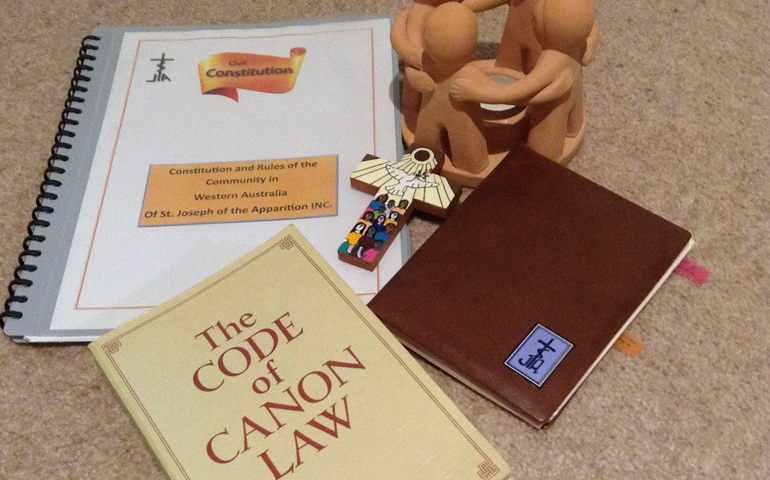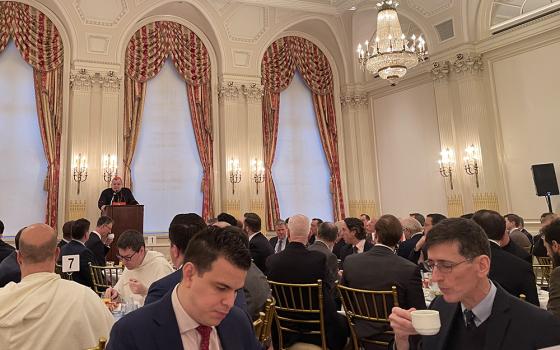
(Lilian Bong)
This month, The Life panelists shared stories from their own congregations and other groups of women religious of how they benefit from legal structures afforded by their own constitutions as well as civil and canonical law. They responded to this question:
In your experience, is canon law oppressive of women religious, or is it more of a legal protection? Do you think religious congregations could use civil law more to enhance their ministry?
______

Amy Hereford is a Sister of St. Joseph from St. Louis. Her background includes teaching, communication, management and administration. As an author, theologian, and civil and canon lawyer, she consults with religious communities and charitable organizations around the world, addressing technical concerns of religious institutes and exploring the evolving nature of religious life.
I work as an attorney and canonist, assisting religious communities to work through the thornier issues of their life together. I think law gets a bad rap because people often call an attorney or canonist when something is going wrong. But the same is true of other service professionals. Something hurts and we call a health care professional. Our car stops working and we call a mechanic. When something isn't working in communities, they can call on a host of professionals who can assist, and a canonist is one of those people. Canon law doesn't cause the problem any more than an oncologist causes cancer.
Good law embodies the values of a society; the constitutions of a religious community embody the values of our religious communities. They are internal law for the community; they state who we are in our common experience of God, community and mission; and they establish a framework for our life together. Most of life in our communities is lived within a sphere of freedom established by the legal framework of our constitutions. When conflict arises or relationships break down, the law helps us navigate the issues by reminding us of our fundamental shared values and of the rights and obligations that come from these values.
Religious institutes grow and change, mature and decline; they find it necessary to change their law and structures to reflect their new self-understanding and to embody the new articulation of their values. Law in religious institutes establishes governance, organizes activities, guides relations within and without the institute in justice and charity, helps us mediate between competing interests and values, and orients and sustains the entire life of the institute so that all together, the institute and its members may "follow Christ with greater freedom ... under the action of the Holy Spirit" (Perfectae Caritatis).




